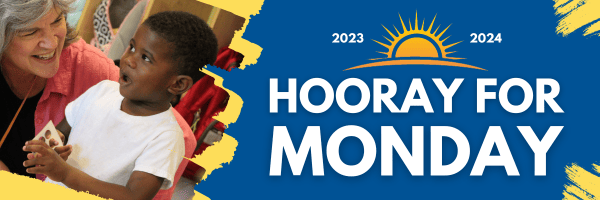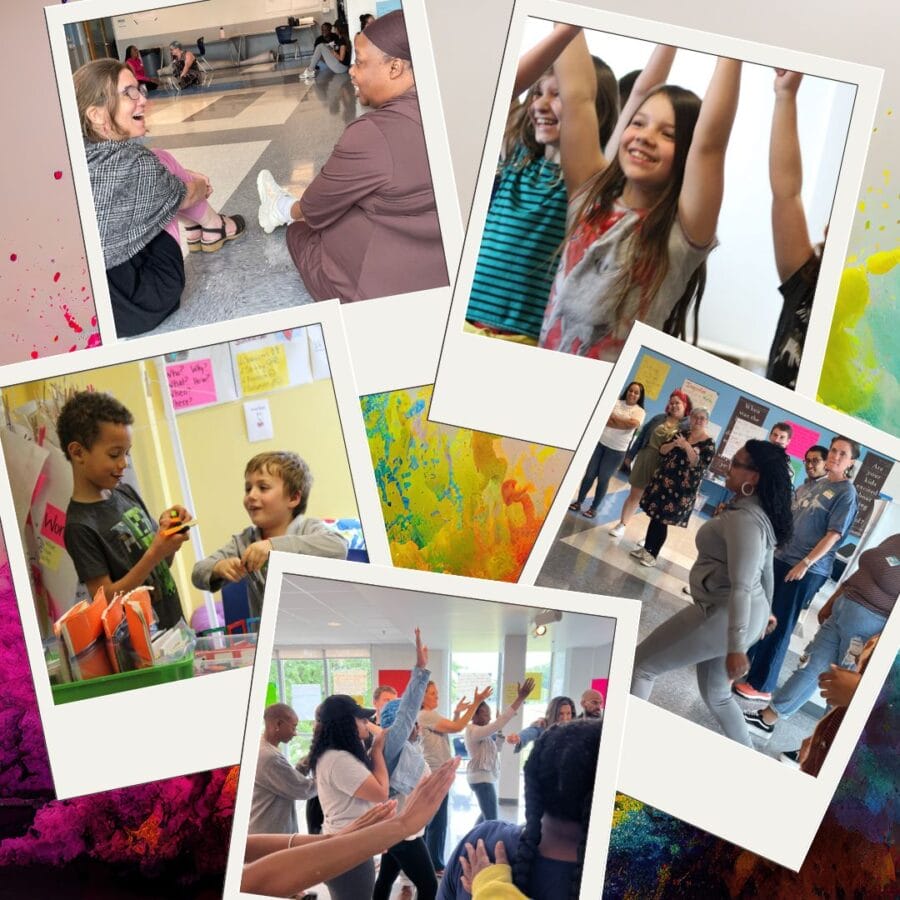
Hooray for Monday is a weekly blog filled with questions, ideas, reflections, and actions we can all take to remodel the school experience for students. Prefer audio? Listen to the Hooray For Monday podcast! Available on your favorite platforms here.
November 13, 2023
By Aleta Margolis, Founder and President
In his 2023 book Awe: The New Science of Everyday Wonder and How It Can Transform Your Life, social psychologist Dacher Keltner describes ways in which every one of us can train our brains to find more meaning in our lives. Keltner explains that, if we look for it, we can find awe everywhere, from the momentous – like a solar eclipse – to the everyday – like the look on a child’s face when she figures out how to solve a math problem.
For me, the most joyful part of Keltner’s book is his description of a teaching practice in which students wrote a poem in response to the question “Why are we alive?” PhD students rated the poems for “how sublime they were” according to these criteria that date back to ancient Greece:
Did the poem have boldness and grandeur of thought?
Did it raise passions to a violent or enthusiastic degree?
Did it show skillful use of language? Graceful expression?
Did it reveal elegant structure and composition?
As I read this section of the book (pp. 62-63), I found myself experiencing awe at the thought that someone somewhere offered students the opportunity to write in a manner that would “raise passions” or express “grandeur of thought!”
Can you imagine how students would feel about writing if these were the criteria schools prioritized in writing instruction?

Keltner defines awe as, “…the feeling of being in the presence of something vast that transcends your understanding of the world.” Can you imagine what might happen if we prioritized awe in school? What if we set up schools with the goal that students – and teachers – would regularly experience awe?!
Keltner cites research that shows the meaningful benefits of awe on our brains and bodies. He explains that when we experience certain kinds of awe, “we concentrate better, handle stresses with more resilience, and perform better on cognitive tests of different kinds.” (p.128)
Other psychologists reinforce those findings. According to a recent article in Psychology Today, “The research reveals that experiencing awe can reduce stress, quiet our inner critic, and inspire us to act more altruistically toward the people around us.” The same article points to research showing that experiencing awe is linked to decreases in anxiety and an increase in generosity.
Imagine for a moment, given the mental health crisis affecting young people and given all we know about how students feel in school, if school were a place that actually decreased students’ anxiety! That would indeed be awesome.

Prioritizing awe sounds like a massive task, and it can be. It can mean reworking all aspects of curriculum, instruction, and assessment to prioritize wonder and students’ questions about the world. (And of course, that is our ultimate goal at Inspired Teaching!)
However, prioritizing awe can start with some simple steps, like these:
- Set aside time each day or a few times a week for students to take “awe walks,” described by Keltner in this recent episode of the podcast “On Being.” These walks can take place outside and also within the school walls.
- Ask your students, “What do you wonder about?” or, as we ask our staff at Inspired Teaching, “What are you curious about?” You can simply pose the question verbally from time to time, or create an Awe Wall – which is just a bulletin board (on the wall or on an online platform) with the question posted in which students and teachers are invited to post responses. When we consider these questions on a regular basis, we build our ability to identify and appreciate awe, and we absorb the mental and physical benefits of experiencing awe.
- Find ways to incorporate memories of awe in curriculum-based assignments: invite students to write expository, persuasive, or narrative essays about times they experienced awe; ask students to identify awesome places in which there is a mathematical explanation for something in nature (think nautilus or beehive or soap bubbles); challenge students to point to moments in history in which individuals or groups acted courageously or generously enough to inspire awe.
- Participate in these awe-inspiring exercises alongside your students. Not only will you be modeling lifelong learning, you’ll also improve your own job satisfaction.
A small step is all it takes to start an awe-journey that will surely make school more meaningful for your students, and their teacher!
Wishing you an awesome week.
For additional insights, resources, and information on Inspired Teaching teacher and youth programming, subscribe to the Hooray For Monday newsletter!
